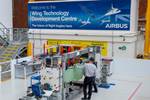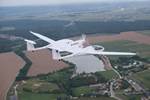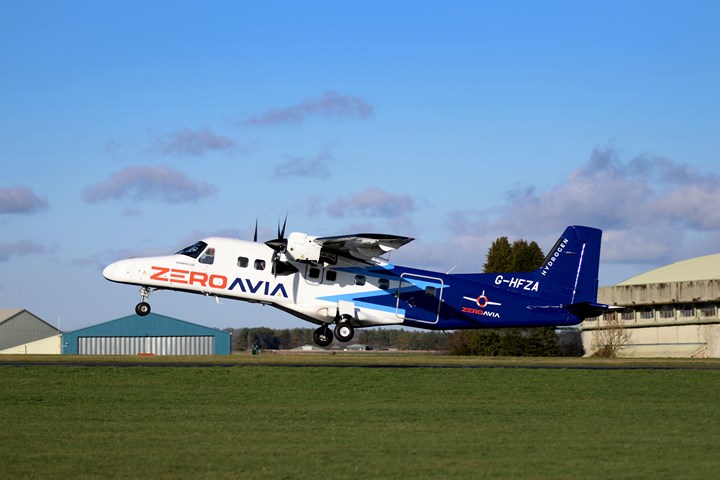Airbus invests in hydrogen-electric company ZeroAvia
Latest financing round boosts plans to progress ZeroAvia engine certifications and Airbus ZEROe concept aircraft, with collaboration in LH2 storage, fuel cells and refueling operations.
Airbus (Toulouse, France) has joined the list of investors in hydrogen propulsion developer ZeroAvia (Kemble, U.K. and Hollister, Calif., U.S.), co-leading a new funding round alongside Barclays Sustainable Impact Capital and NEOM. Other investors include Energy Ventures, Horizons Ventures, Alaska Airlines, Ecosystem Integrity Fund, Summa Equity, AP Ventures and Amazon Climate Pledge Fund.
As part of this investment, Airbus and ZeroAvia have agreed to collaborate on certification approaches for hydrogen power systems and work together on a number of critical technical areas, including liquid hydrogen fuel storage, flight and ground testing of fuel cell propulsion systems, and development of hydrogen refueling infrastructure and operations.
In addition, the investment will accelerate ZeroAvia’s progress in certifying its first ZA600 engine for a 2025 entry-in-service date — the hydrogen-electric product will support up to 20-seat aircraft, — support development of the company’s larger 2-5.4-megawatt ZA2000 engine and enable in-house development of multi-megawatt class hydrogen-electric engines, including high-temperature PEM (HTPEM) fuel cells, advanced electric motors and power electronics and onboard liquid hydrogen fuel storage (read “ZeroAvia advances to certify ZA600 in 2025, launch ZA2000 with liquid hydrogen in 2027”).
The startup has completed an initial campaign of flight tests with a ZA600 powertrain demonstrator in a Dornier 228 testbed and is finalizing the design ahead of applying for certification with the UK Civil Aviation Authority. ZeroAvia is targeting market entry in 2025 with supplemental type certification of a retrofit for the Cessna Caravan.
“Anybody following the development of hydrogen aviation — and its potential to transform the industry — will see this investment as a positive step,” Val Miftakhov, founder and CEO of ZeroAvia, says. “Airbus has led the way with its zero-emission vision and its commitment to extensive R&D programs. For ZeroAvia to now have investors such as Airbus coming on board is the strongest possible validation of the prospects for hydrogen-electric propulsion technology.”
Airbus is fostering alternative propulsion using hydrogen. Fuel cell systems are an important part of its ZEROe aircraft concepts program, designed to deliver low-carbon emission airframes of various sizes. The industry major has recently ground tested a hydrogen engine concept at 1.2 megawatts of power.
“ZeroAvia is supporting the development of a wider hydrogen ecosystem for aviation — technologies, decarbonized hydrogen supply and certification of hydrogen propulsion systems — which all complement well with our own ambition to bring a ZEROe hydrogen powered aircraft to service by 2035,” Glen Llewellyn, Airbus vice president ZEROe Aircraft, says.
Related Content
-
Next-generation airship design enabled by modern composites
LTA Research’s proof-of-concept Pathfinder 1 modernizes a fully rigid airship design with a largely carbon fiber composite frame. R&D has already begun on higher volume, more automated manufacturing for the future.
-
Combining multifunctional thermoplastic composites, additive manufacturing for next-gen airframe structures
The DOMMINIO project combines AFP with 3D printed gyroid cores, embedded SHM sensors and smart materials for induction-driven disassembly of parts at end of life.
-
Plant tour: Albany Engineered Composites, Rochester, N.H., U.S.
Efficient, high-quality, well-controlled composites manufacturing at volume is the mantra for this 3D weaving specialist.

















